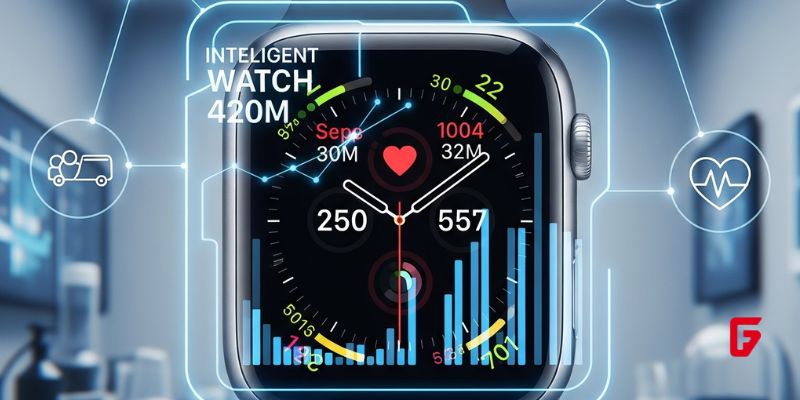By futureTEKnow | Editorial Team
The healthcare industry is undergoing a remarkable transformation, thanks to the power of immersive technologies. Virtual reality (VR), augmented reality (AR), and mixed reality (MR) are no longer confined to the realm of science fiction or gaming; they are now revolutionizing patient care, medical training, and treatment methods.
From surgical simulations to pain management, these cutting-edge tools are enhancing the way healthcare professionals diagnose, treat, and educate. Patients are benefiting from more engaging and effective therapies, while medical students and practitioners hone their skills in risk-free virtual environments.
In this blog post, we’ll explore 21 innovative companies that are at the forefront of this healthcare revolution. These pioneers are developing groundbreaking applications that promise to improve patient outcomes, streamline medical procedures, and push the boundaries of what’s possible in modern medicine.
The world of healthcare is changing—and it’s happening through technology that sounds like it’s straight out of a sci-fi movie. Imagine doctors training for surgery in a virtual operating room, or patients managing chronic pain by putting on a headset that transports them to a calming environment. Immersive technologies like virtual and augmented reality aren’t just cool gadgets; they’re powerful tools reshaping how we prevent, diagnose, and treat medical conditions.
Picture this: a young surgeon stands in an operating room, scalpel in hand, ready to perform a tricky heart procedure. But there’s a twist—the patient isn’t real, and neither is the operating room. Welcome to the world of VR surgical training.
These virtual environments are like ultra-realistic video games, but instead of shooting aliens, surgeons are practicing life-saving techniques. They can slice, stitch, and problem-solve without the pressure of a real patient on the table. It’s like having a flight simulator, but for doctors.
The best part? It works. Studies show that surgeons who train in these virtual worlds make fewer mistakes and work faster when they get to the real thing. One study found that VR-trained surgeons completed gallbladder removals 29% faster and were six times less likely to make errors.
But it’s not just about practice. During actual surgeries, augmented reality can overlay important information right in the surgeon’s field of view. Imagine having X-rays or patient vitals floating in mid-air, exactly where you need them. It’s like giving surgeons superpowers, helping them make split-second decisions with more confidence and precision.
Imagine you’re recovering from a serious injury or dealing with chronic pain. The thought of physical therapy might make you wince, but what if you could do your exercises while exploring a beautiful virtual forest or swimming with dolphins? That’s the power of immersive technologies in rehabilitation and pain management.
These high-tech tools aren’t just fancy distractions. They’re changing the game in real, measurable ways. When patients use virtual reality during their therapy sessions, they report feeling significantly less pain—about 24% less, to be exact. That’s like turning down the volume on your pain from an 8 to a 6 on the pain scale.
But it gets even better. Remember how hard it can be to stick to a rehab program when you’re hurting and progress feels slow? Well, when therapy involves immersive tech, patients are 30% more likely to keep up with their exercises and appointments. That’s a huge deal because consistency is key in recovery.
Why does this work so well? For one, these technologies can transport you out of the clinical setting, making therapy feel less like a chore and more like an adventure. They can also provide real-time feedback, helping you perfect your movements and see your progress more clearly. And let’s be honest—it’s just more fun to do your exercises when you’re virtually snowboarding down a mountain rather than staring at a blank wall in a rehab clinic.
This isn’t just about making therapy more enjoyable, though. By reducing pain and increasing how often people stick with their treatment, these technologies are helping patients recover faster and more completely. It’s a win-win that’s changing lives, one virtual world at a time.
Remember those clunky video games from the 90s? Well, their high-tech cousins are now helping people recover from injuries and manage pain in ways we never imagined. Patients going thru physical therapy, instead of just lifting weights or stretching, they are immersed in a colorful virtual world. Maybe reaching for digital butterflies or steering a virtual boat. It sounds fun, right? That’s the point. These immersive technologies are turning tough therapy sessions into engaging experiences.
But it’s not just about fun and games. The numbers tell a pretty impressive story. People using these virtual reality therapies are reporting that their pain feels about 24% less intense. That’s a big deal if you’re dealing with the discomfort of recovery.
Even more impressive? Patients using these technologies are 30% more likely to stick with their rehab programs. Anyone who’s ever tried to keep up with physical therapy knows how huge that is. It’s like having a secret weapon against the “I’ll do it tomorrow” excuse.
Why does this work so well? For one, it distracts your brain from pain. It’s also more engaging than traditional exercises, so you’re more likely to put in the time and effort needed to recover. Plus, these systems can be tailored to each person’s needs, making therapy feel more personal and relevant.
This isn’t just a flash in the pan. Hospitals and clinics are increasingly adopting these technologies because they’re seeing real results. Patients are recovering faster, experiencing less pain, and actually looking forward to their therapy sessions.
It’s a pretty exciting time in healthcare. Who knew that the technology we once used just for entertainment could become such a powerful tool for healing? It just goes to show that sometimes, the best medicine might be a dose of virtual reality.
Immersive Technology is not just a futuristic concept in healthcare—it’s already making waves. From helping surgeons hone their skills to easing patients’ pain, these tools are reshaping how we approach medicine. The numbers don’t lie: better surgical outcomes, reduced pain, and more accurate diagnoses are just the beginning. As this tech becomes more widespread, we can expect even more innovative uses that put patients first.
Founded in 2018, futureTEKnow is a global database dedicated to capturing the world’s most innovative companies utilizing emerging technologies across five key sectors: Artificial Intelligence (AI), immersive technologies (MR, AR, VR), blockchain, robotics, and the space industry. Initially launched as a social media platform to share technology news, futureTEKnow quickly evolved into a comprehensive resource hub, spotlighting the latest advancements and groundbreaking startups shaping the future of tech.

Paris-based Tandem raises $3.8M to advance its AI-driven team collaboration platform, aiming to streamline workflows and empower remote and hybrid teams with smarter productivity tools.

Apple’s new AI model leverages Apple Watch behavior data—like activity, sleep, and mobility—to deliver more accurate, early health predictions and insights.

Microsoft is investing $4 billion in Elevate, aiming to train 20 million people worldwide in AI skills. The program offers accessible education, credentials, and global partnerships to prepare the workforce for an AI-driven future.

Discover how the AI boom is pushing the U.S. power grid to its limits, raising energy costs and prompting urgent upgrades in infrastructure and policy.

After spinning out from Intel, RealSense secures $50 million in funding to accelerate advancements in AI vision and robotics. Learn what this means for the future of automation and intelligent systems.

Filics has closed a €13.5M funding round to accelerate the development and international expansion of its autonomous warehouse robots, targeting efficient logistics and intralogistics innovation.

Amazon Web Services will debut its Agentic AI Marketplace next week, featuring Anthropic’s advanced AI. Learn how this move could reshape enterprise AI adoption and innovation.

Google Gemini AI introduces a photo-to-video feature, enabling users to create dynamic 8-second video clips with sound from images. Available for Ultra and Pro subscribers, this tool is powered by Veo 3 and brings new creative possibilities for content creators.

Varda Space has secured $187 million in funding to boost its space-based drug development program, targeting pharmaceutical breakthroughs and commercial launches by 2025.

Irish AI startup Oraion has raised €2.9 million in pre-seed funding to expand into the U.S. market and accelerate development of its enterprise automation platform.

NEURA Robotics and Hyundai are teaming up to deploy advanced cognitive robots in shipbuilding, aiming to solve labor shortages and set new standards in automation, safety, and productivity.

Discover how rapid AI advancements may soon replace traditional jobs, disrupt global economies, and drive the need for new income models like UBI.
futureTEKnow is focused on identifying and promoting creators, disruptors and innovators, and serving as a vital resource for those interested in the latest advancements in technology.
© 2025 All Rights Reserved.
To provide the best experiences, we use technologies like cookies to store and/or access device information. Consenting to these technologies will allow us to process data such as browsing behavior or unique IDs on this site. Thanks for visiting futureTEKnow.